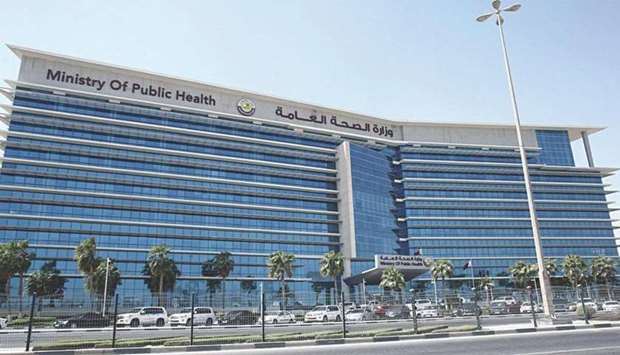Qatar's strategy to respond to the Covid-19 pandemic relies heavily on contact tracking and tracing, which enables the early identification of cases, including those who do not show symptoms.
Contact tracing aims to reach positive cases as early as possible to help break the chains of transmission and reduce the spread of the infection in the community.
Over 135,000 Covid-19 tests have been conducted in Qatar so far and intense contact tracing and case finding has allowed for the identification of a large number of cases.
Approximately 25% of those tested by contact tracing are positive, most of which have no signs or symptoms. This high percentage reflects the effectiveness of the contact tracing process and that the right people are being tested.
The early detection of positive cases plays a key role in slowing the spread of the virus. It also allows for early treatment, when needed, to prevent potential complications, which some patients may suffer from if they are identified at later stages, especially if they suffer from existing medical conditions.
This has helped Qatar maintain one of the lowest Covid-19 mortality rates in the world. To date, the country has recorded 14 deaths, with the majority of these patients suffering from co-morbidities and sought medical care at a late stage.
The Ministry of Public Health (MoPH) has a dedicated team for contact tracking and tracing. The team has expanded from 20 to 240 members over the past weeks to meet the requirements for extensive contact tracing.
The team includes representatives from the MoPH, Hamad Medical Corporation, and Primary Health Care Corporation, as well as a number volunteers.
If someone tests positive for the virus, a representative will speak to them to gather information on places they visited and people they have been in contact with.
This information is used to build up a detailed picture of the people who could have been infected, such as colleagues or family members. Contacts are then tested and advised to home isolate for 14 days, even if the test results turn out to be negative. People under home isolation are then advised to call 16000 if they develop any signs and symptoms
"It is of utmost importance that the public co-operate with us. Providing accurate information when contacted and agreeing to get tested as soon as possible minimizes the risk on both the contact themselves and their families and colleagues," said the Head of Vaccination at MoPH and Covid-19 Contact Track and Trace Lead Dr Soha Shawqi Albayat.
"Even if a person seems healthy, he may still be carrying the virus and may cause for one their family members who may be at a higher risk than them, due to being older, pregnant, or suffer from a chronic condition, to get infected and possibly suffer complications," she added.
In addition to tracking and tracing contacts of existing positive Covid-19 cases, the contact tracing team implement random testing in numerous locations in Qatar. So far, they have conducted random testing in supermarkets, private hospitals and clinics, residential complexes, the airport, in addition to a number of other locations.
When a large number of positive cases in close proximity are identified, for example in a household or workplace, this generates further investigation and expansion of the contact tracing efforts in that community.
The MoPH contact tracing efforts are now strongly supported by the Ehteraz Application, which was launched recently by the Ministry of Interior. The application performs various services, including the profiling of users as healthy, suspected, under quarantine, or positive. The application also uses a GPS feature and Bluetooth to help identify individuals who have been in close proximity with positive cases.
In addition to contact tracing and random testing, Covid-19 testing in Qatar is also conducted on people who come to a healthcare setting and display Covid-19 symptoms as well as people returning from abroad.
The MoPH advices all residents of Qatar to adhere to all infection control measures, including physical distancing, regular cleaning of hands using soap and water or alcohol-based hand sanitizer for at least 20 seconds, avoiding the touching of nose, eyes, or mouth, and wearing a mask when entering a crowded place.
For more information on Coronavirus Disease 2019 (Covid-19), visit the MOPH website on www.moph.gov.qa or call 16000.

